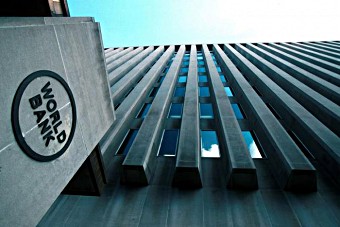
World Bank: Growth in Cambodia Remains Strong
2017-05-17
Driven mainly by resilient construction and garment sectors, Cambodia’s economic growth remains strong, projected to reach 6.9 percent in 2017 and 2018, according to a new World Bank report.
While the outlook remains favorable, there are some signs of moderation, in particular in the construction sector, said the latest Cambodia Economic Update (CEU) launched today. Garment exports are facing strong completion. Due to US dollar appreciation, rising labor costs, and competition from other regional low-wage countries, growth in garment exports decelerated, expanding at 8.4 percent year-on-year in 2016, compared with 12.3 percent in 2015. To boost export competitiveness, the report emphasizes the importance of Staying Competitive Through Improving Productivity.

ADB Expects Robust Growth for Cambodia's Economy, Retains Forecast for 2017 and 2018
2017-09-26
PHNOM PENH, CAMBODIA (26 September 2017) — The Cambodian economy remains on track to grow strongly this year, says a new Asian Development Bank (ADB) report released today. In an update of its flagship annual economic publication, Asian Development Outlook (ADO) 2017, ADB retained its forecast of slightly higher economic growth of 7.1% for 2017 and 2018, in line with strong performance across developing Asia and a recovery in the major industrial economies.
“Cambodia’s economy continues to expand at a robust pace, propelled by export diversification, strong construction and tourism activities, better weather conditions, and supportive fiscal policy,” said Samiuela Tukuafu, ADB Country Director for Cambodia. “Sustaining high and inclusive economic growth, and reducing poverty and vulnerability of the population will depend on Cambodia’s ability to stay competitive by boosting labor productivity. ADB is scaling up its assistance to the Royal Government of Cambodia starting from this year to support the government to improve productivity and develop value chains in the agriculture sector, improve connectivity, upgrade basic education and technical and vocational skills, and raise pro-development expenditure to further improve public service delivery.”
© by Joysoft Inc. All Rights Reserved
